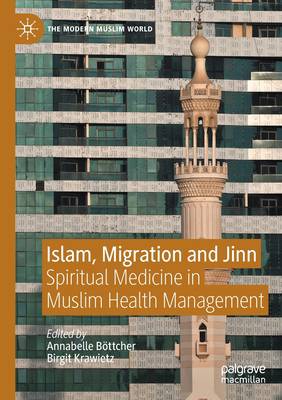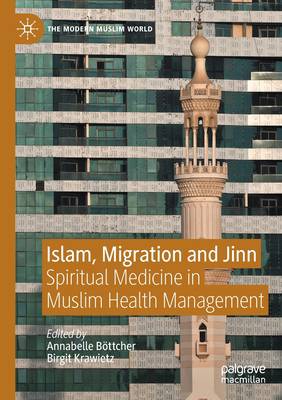
- Retrait gratuit dans votre magasin Club
- 7.000.000 titres dans notre catalogue
- Payer en toute sécurité
- Toujours un magasin près de chez vous
- Retrait gratuit dans votre magasin Club
- 7.000.0000 titres dans notre catalogue
- Payer en toute sécurité
- Toujours un magasin près de chez vous
Islam, Migration and Jinn
Spiritual Medicine in Muslim Health Management
Description
This book explores the agency of Jinn, the so-called "demons of Islam". They are regarded as mostly invisible and highly mobile creatures. In a globalized world with manifold forms of forced and voluntary migrations, Jinn are likewise on the move, interfering in the human world and affecting the mental and physical health of Muslims. This continuous challenge has so far been mainly addressed by traditional Muslim health management and by the so-called spiritual medicine or medicine of the Prophet. This book shifts perspective. Its interdisciplinary chapters deal with the transformation of manifold cultural resources by first analyzing the doctrinal and cultural history of Jinn and the treatment of Jinn affliction in Arabic texts and other sources. It then discusses case studies of Muslims and current health management approaches in the Middle East, namely in Egypt and Syria. Finally, it turns to the role of Jinn in a number of migratory settings such as Spain, Denmark, Great Britain and Guantanamo.
Spécifications
Parties prenantes
- Editeur:
Contenu
- Nombre de pages :
- 254
- Langue:
- Anglais
- Collection :
Caractéristiques
- EAN:
- 9783030612498
- Date de parution :
- 15-03-22
- Format:
- Livre broché
- Format numérique:
- Trade paperback (VS)
- Dimensions :
- 148 mm x 210 mm
- Poids :
- 349 g

Les avis
Nous publions uniquement les avis qui respectent les conditions requises. Consultez nos conditions pour les avis.





